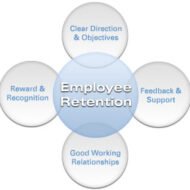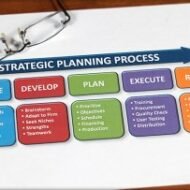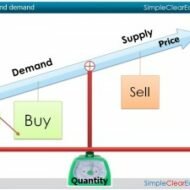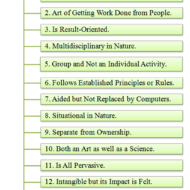Posted by Managementguru in Decision Making, Entrepreneurship, Human Resource, Organisational behaviour, Principles of Management, Training & Development
on Mar 20th, 2014 | 0 comments

Self Motivation-Key to Managerial Success What is Self Motivation : Ability to do what needs to be done without external influence. How does your company become successful? Just because you have cutting edge technology! Surplus capital! Excellent Infrastructure! Reliable Workforce! Definitely not. A COMPETENT VALUE-DRIVEN CORPORATE MANAGER would make all the difference. Even his very presence would make the atmosphere ELECTRIC. Only some are gifted or bestowed with top managerial qualities. How! Is it an innate quality or imbibed! It is a topic worth the discussion, because it proves to be the liveliest element in the management process. Well, when top management decides to recruit a good manger, what are the qualities they would be in favor of? Think about it, we even expect a house maid to be sincere, on time and loyal to us. When it comes to corporate dealings, the first and foremost quality desired will be “BEARING HUGE RESPONSIBILITY“. Accountability, transparency and control towards the day to day affairs of the company follow suit. Read this resourceful article from Inlpcenter – Change Your Thinking: The Alternate Futures Self-Motivation Exercise , a unique self motivating strategy to make believe in yourself and become better problem solvers. These managers who are also leaders serve as a ROLE MODEL for all the other employees SET STANDARDS FOR PERFORMANCE Motivate their employees Set a Brand Image for the company Be a GOOD LIAISON Problem solver Counselor and make the company special. Strategic Direction: When we talk about value, we talk about the influence that the value has on the STRATEGIC DIRECTION OF THE FIRM, which involves shaping up the character and image of the firm. A good manager EVOLVES OVER A PERIOD OF TIME. While considering the HEAVY TURN OVER TREND that has set in lately in the corporate environment, it becomes important for the top management to pick their HR lot carefully. How do you empower your trusted persons is a question that every Boss has to ask himself to retain the best talent. Good Managers stick to the firm and they contribute to the GROWTH OF THE FIRM. Training plays, of course a major part in the DEVELOPMENT OF MANAGERS but I feel that ONLY THE PERSON WHO MAKES THE BEST USE OF HIS SUBCONSCIOUS INNER DRIVE, REACHES THE TOP. Loyalty is an outdated term in this modern world and the minimum you could expect is SINCERITY. Self motivated managers easily regulate the environment and makes the climate cordial. He has to don many roles, A BRIDGE BETWEEN TOP MANAGEMENT AND EMPLOYEES MANAGE THE INTEREST(OF BOTH THE FINANCIAL INSTITUTIONS AND EMPLOYEES) FORMULATING MARKET STRATEGIES SHOULD BE A TECH-SAVVY A MAN OF EMPATHY A MAN OF BRILLIANT INTUITIONS(ESPECIALLY WHEN IT CONCERNS STOCK MARKET) EVER LEARNING VERSATILE and much more. Practice makes a man perfect is the saying. It suits the corporate business world too, provided the man is intelligent, capable and smart in taking decisions. Always a thinking person, an efficient manager would be on the look out for opportunities and resources that could benefit the firm. Every one of you who aspires to catch up with top positions in the business world must do a “THOROUGH SELF ANALYSIS” as to how agreeable you are in the likert scale of the...

Posted by Managementguru in Business Management, Human Resource, Organisational behaviour, Principles of Management, Training & Development
on Mar 19th, 2014 | 0 comments

New Paradigms in Employee Retention What is Employee Retention: It refers to the various policies and practices which let the employees stick to an organization for a longer period of time . It refers to the ability of an organization to retain its employees. HRM Practices: A company to ground itself successfully in the chosen field of activity should adhere to sound human resource management practices, as it is firmly believed that human resource is an asset and investment in human capital paves way for comprehensive development. Many firms fail, in spite of being resourceful in terms of capital, infrastructure and technology. The reason shall be attributed to ineffective handling of human skills or misappropriation of human potential. Human resource management involves not only in recruiting and selecting the right people but also empowering them by suitable training to enhance their technical skills and expertise to perform tasks. The Purpose of Training: Training ultimately aims at converting theorists to performers and orients itself towards accomplishing the enterprise objectives. Big corporate companies concentrate on talent acquisition from the pool of fresh graduates and experienced hands in the IT industry as well. They create a lively corporate atmosphere with “an intelligence network” contributing to the success of the organization. Recruitment and Selection: If you have a feeling that, recruitment and selection are mere procedures to be followed for the sake of selection of human resource, kindly change that notion. These are the crucial steps which determine the fate of your organization. People from different disciplines form a team to achieve the goals and objectives of your organization. Leading a group with such diversity is a feat in itself. Selecting knowledge workers whom you believe will achieve your corporate mission and devising the human resource practices in accordance with their work-life balance will yield great results. Training Programmes: Training programs are developed for different spheres of activity by experienced trainers under the guidance of the top management. Proper training to the trainees ensures maximum work done in minimum time. Training not only makes individuals more informative and knowledgeable but also action buffs. Learning is a key process in training that brings about the desired change in behavior. Corporate companies are also concerned about the career prospects of employees working for them, as they are very well aware of the fact that providing lateral and vertical growth prospects for their workers is the only possible way to retain them. Another way for employee retention is to offer compensation on par or higher than industry standards and periodic review of their pay or compensation in accordance with the performance standards. This method of evaluation is suitable only for companies where workers are highly self motivated and have the capability to understand what it takes to reach the next level in their career ladder. Flexi-Timings: Flexibility is introduced in work life by some of the big corporates who try to visualize the practical problems faced by their employees, particularly women, who come to work. They offer “flexi-timings” in work and support by running “crèche” to nurture new borns. It has been proved that a small siesta after lunch improves the brain activity. The HR policies formulated by the management must encompass all the elements needed for a holistic vision, mission and business growth. This can be made possible by maximizing the efficiency of human capital that adds value to the organization. Note: Companies will also continue to remain generous with pay packages but the big change will be that they will invest a lot more in training and development. “Acquiring talent is much more expensive than grooming...

Posted by Managementguru in Business Management, Marketing, Principles of Management, Strategy
on Mar 16th, 2014 | 0 comments

Strategies to Tide Over Competition Distinctive Competence: is nothing but a set of unique capabilities that certain firms possess allowing them to make inroads into preferred markets and to gain advantage over the competition. Human brain is the greatest think tank and it evolves new methodologies of business management from time to time in order to sustain as well as win the race. Planning is the key factor that decides the rise or downfall of a business empire. “Where we are?” and “Where we want to be in the next few years?” is how every business leader’s basic thought process must be, without which he cannot proceed further in the competitive corporate environment. If we call planning as the basement of a building, then it should be very precise, clear cut and robust so that the business empire built on this basement will never collapse and it will also serve as a role-model for everyone who aspires to set his foot in the corporate business world. At the corporate level, strategic planning helps to establish the Purpose Mission and Objective for the firm as a whole and “outlines the overall plan to attain them.” Strategy is nothing but a unique set of action plan that will distinguish you from your competitors and make you have an edge over them. Likewise strategic planning is nothing but thinking out of the box to” CREATE YOUR OWN NICHE MARKET” in the business environment. STRATEGIC COMPETENCE takes you to the top of the ladder; but to withhold your position you need to formulate innovative ideas to tide over the challenges in the market. Strategic planning facilitates this process by giving you time frame to complete your short term objectives and long term goals. Infographic Courtesy: The 4 key sources to seek insights for marketing planning Planning for SBU’s: Business level planning is done for the enterprise’s STRATEGIC BUSINESS UNITS or SBU’S. These are individual” cash cows” that makes your business noteworthy and also brings in constant revenue to run your other units successfully even in periods of recession or if a particular product is not that successful as you might have expected it to be. I shall compare a business plan to a travel plan. Both involve planning, resources, capital, marketing and so on. . . Both have starting points but a business plan and its objectives never end and you can never come back to the starting point in a business as that of a travel, because you only expand and grow to greater heights in a business provided your plan is pucca. And also the strategy seeks the integration and control of marketing, finance, production and human resources at the functional level. Strategic Plans at different functional levels: Strategic plans at different levels must be integrated to ensure that they work in tandem and reinforce each other, thereby contributing to the corporate level strategy adopted for the entire corporate group. I would call strategic planning as” INTELLIGENCE DESIGN CHOICE ACTIVITY “adopted by a corporate and it has become an inevitable feature in the directory of the business world....

Posted by Managementguru in Economics, Financial Management, Principles of Management
on Mar 15th, 2014 | 0 comments

Demand vs. Supply- Parameter deciding market equilibrium The success of economic freedom of a country is naturally reflected in the form of human prosperity. Countries like India are evidencing a consistent increase in their annual GDP rates which obviously must have reduced the population percentage living below poverty line; yet this has not been accomplished and the question is, is it really something to do with the economic model or is it the bureaucracy and inefficiency the root cause for the strain in the economy? Flow of Economic Activity: This discussion aims at shedding some light on the flow of economic activity in a free market economy. The elemental players or contributors in a free enterprise market economy are individuals and firms. Individuals who own or control resources (in the form of labor, capital or natural resources), sell these resources to firms and obtain money. These resources which serve as necessary inputs in the production process add value to firms. The money received by individuals is called factor payment which is utilized to fulfill their consumption demands of goods and services. Two distinct areas of interaction exist between the individuals and firms. One is the product market where the products are bought and sold and the other being a market for production factors, where the inputs such as labor, capital and natural resources are traded. What is the activity in a product market? Fundamentally business is all about demand vs. supply. The consumers’ demand has to be met with by the manufacturers. Profit is the primary motive of any firm and the priority of a firm lies in responding to the demands of the consumer market by supplying goods and services to the potential and prospective buyers. Input costs and production technology are the determinants of supply conditions. People’s preferences and earnings decide the elasticity of market demand. The price of the product and quantity sold is a result of the interaction between demand and supply. In a product market money flows from consumers to firms and goods and services flow from firms to consumers. What happens in a factor market? The reverse of those conditions in the product market are seen in a factor market. Here the individual becomes the supplier of production factors and hence the money flows from firms to individuals and factors of production from individuals to firms. Prices and profits control the flow of money and resources through the factor market and flow of money and goods through the product market. What is a Free Market Enterprise? Added advantage of a free market enterprise is that, the effortlessness with which one can enter and exit the market. The activity flow proves advantageous to each person involved .Firms make profits, individuals are satisfied of their consumption demand for goods and services, resource owners are compensated for their services. If an individual is not able to benefit by trading in these markets, he or she is not required to do so or free to leave the market which ensures that nobody is made worse off by voluntary trade in these markets. Essentially countries have to go in for suitable economic restructuring that promotes equality and even distribution of wealth. Wall Street protest in US is a clear-cut indication of strained market economy which is a result of people’s fury against the prevailing economic...

Posted by Managementguru in Business Management, Principles of Management
on Feb 15th, 2014 | 0 comments

Nature and Characteristics of Management Some good definitions on Management: According to Harold Koontz, “Management is the art of getting things done through and with people in formally organised groups.”- in his book “The Management Theory Jungle”. According to Henri Fayol, “To manage is to forecast and to plan, to organise, to command, to co-ordinate and to control.”- in his book “Industrial and General Administration”. According to Peter Drucker, “Management is a multi-purpose organ that manages business and manages managers and manages workers and work.”- in his book “The Principles of Management”. According to Mary Parker Follet, “Management is the art of getting things done through people.” According to William F.Glueck, Management is the effective utilization of human and material resources to achieve the enterprise objective. Concepts of Management: Management as an Activity Leader is the Manager Team consist of the Subordinates Synergy – Leads to enhanced performance The activities of management are: Interpersonal activities Decisional activities Informative activities Management as a Process Management is a continuous process involving interaction of people and integration of human, physical and financial resources. Management as an Economic Resource Management is an important factor of production like Land Labor and Capital Management as a Team The team comprises of Top level management- CEO ,CHAIRMAN,PRESIDENT and the like Middle level management-Department Heads Low level management-Work force or the Employees Pic Courtesy: Charismatic Leaders Management as an Academic Discipline Getting a management degree has become the order of the day and many reputed educational institutions are coming out with a new discipline in management course every day that rewards an exciting and challenging career for the graduates. Management professionals are the need of the hour for corporate companies to manage the dynamic environment that poses very many challeneges. Management as a Group Chief executive (managing director), Departmental heads Supervisors make up the management group. Nature and Characteristics of Management 1. Management is goal-oriented: The ultimate purpose of management is to achieve certain goals over a period of time. The goals must be realistic and achievable that ensure efficient utilization of the resources and satisfy the enterprise objectives. 2. Management is universal: Where ever there is a business activity or non-business activity, management comes into the fore. Be it a small family function or a multi crore business activity, you need people and other resources to make it a success. 3. Management is an Integrative Force: Team work creates synergy and accomplishment of the firm’s objectives by the unified and co-ordinated efforts of all the individuals working for that firm. Note: 1+1=2, we all know that . Have you heard of 1+1>2 , Yes, synergy is the combined effort of all the people working as a team that leads to enhanced performance levels facilitating the completion of objectives in a short span of time. Dhirubhai Ambani was very popular for completing tasks in lightning speed. This was possible only because he had able administrators who shared the same kind of wavelength. 4. Management is a Social Process: You can become an excellent manager without becoming a good leader, but you cannot be an excellent leader without becoming a good manager. This explains it all. Management is a social process since it involves people and their inter personal relationship. A good manager succeeds in motivating , guiding and extracting work from people working under him. 5. Management is multidisciplinary: Management takes inspiration from disciplines like engineering, sociology, psychology, economics, anthropology etc. 6. Management is a continuous Process: Management is a dynamic and an on-going process. A business has to die on its own. 7. Management is Intangible: The success of management can only be measured...










